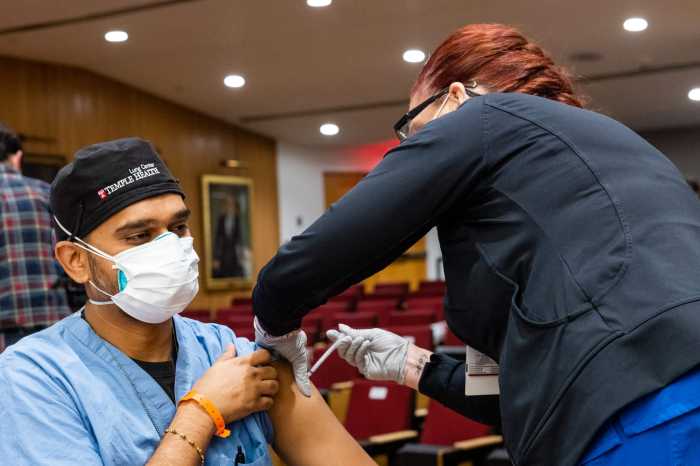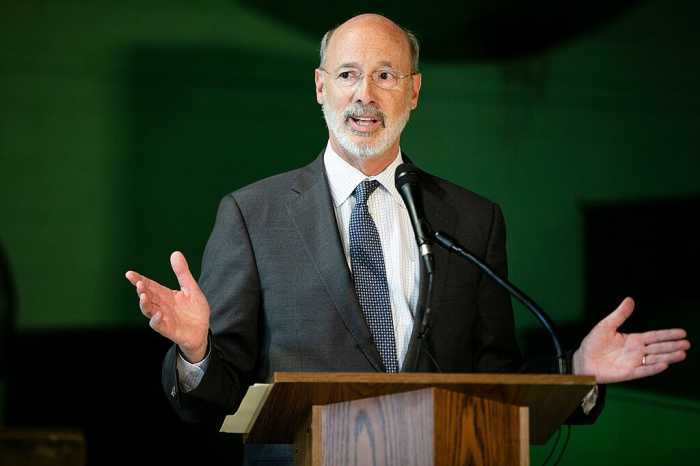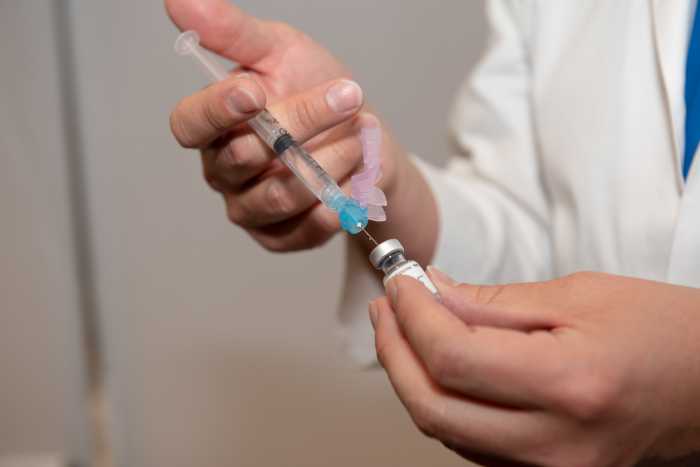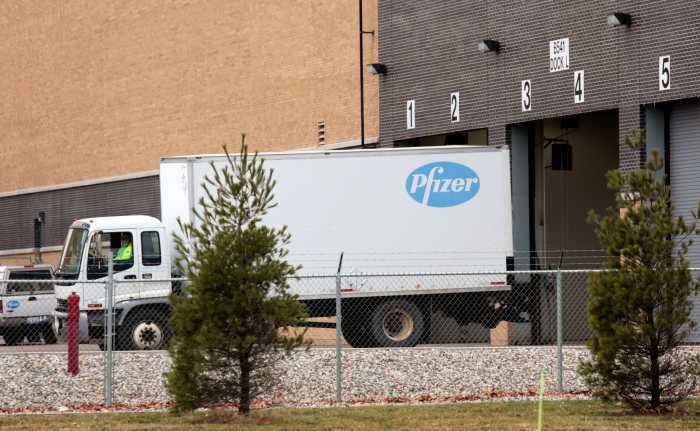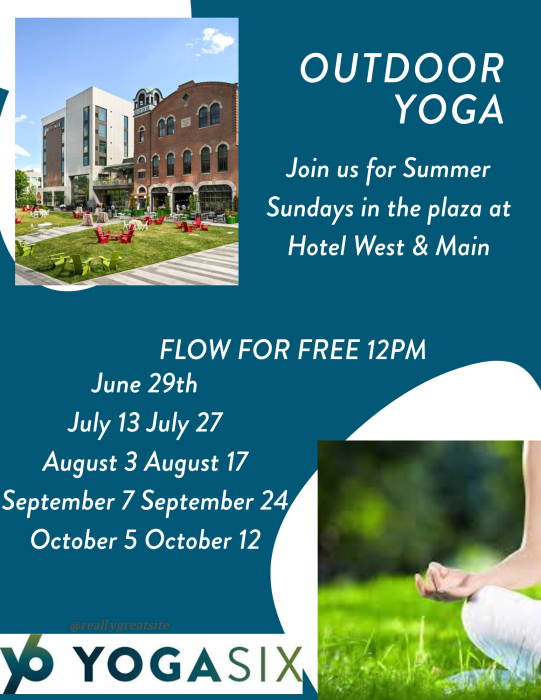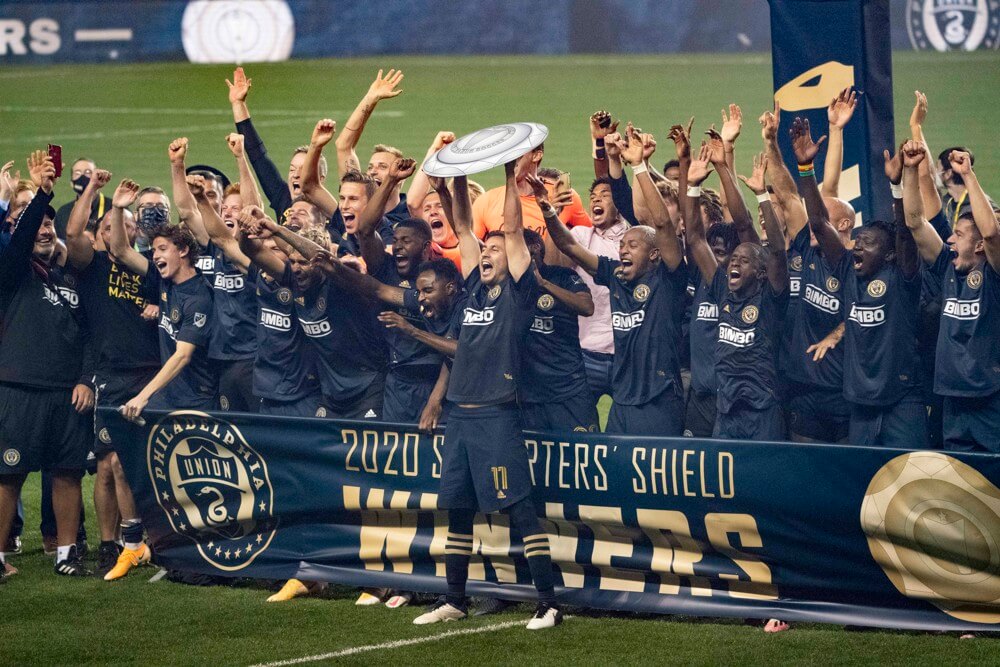Pennsylvania is preparing to move to Phase 1B of its vaccine rollout “soon,” the state’s health secretary, Rachel Levine, said Monday.
She indicated that the transition could be made, even if every individual in the first phase — which includes healthcare workers and residents and staff of nursing homes — is not immunized.
The pace of the country’s vaccination campaign has faced scrutiny; however, in recent days, the rollout has accelerated, Levine said.
“I think that things have already geared up in Pennsylvania and throughout the nation last week,” she told reporters. “We can see that the vaccination pace has increased, and I think that that will continue to increase.”
Pennsylvania has received 827,300 doses of the Pfizer-BioNTech and Moderna vaccines, of which 285,671 have been administered. The state is slated to get about 138,000 doses this week.
The numbers do not reflect doses passing through Philadelphia, which is handling its own distribution.
Levine said statistical discrepancies regarding the state’s allotment from the federal government and reporting delays could be responsible for the large gap between doses received and people vaccinated.
“I think it’s a misconception that thousands of doses are just sitting there,” she added. “I think that depends upon when those doses arrive and when they’re going to be given.”
Hospitals are required to report their doses to the state’s Department of Health 24 hours after administration, and CVS and Walgreens, which are leading inoculations at nursing homes, have 72 hours.
More than 48,000 long-term care facility residents and staff have received vaccines in Pennsylvania, and about 21,000 healthcare workers have gotten their second injection.
In Philadelphia, a total of 46,000 people had been vaccinated as of Monday.
Levine showed support for President-Elect Joe Biden’s proposal to ship out as many doses as possible, instead of the current practice of holding second doses in reserve.
“If they feel comfortable that those second doses will be there, then I’m in favor of their plan,” she added.
On Friday, state leaders, including Gov. Tom Wolf, revealed a revised distribution plan detailing the next groups eligible to receive the shot.
Among those included in 1B are people ages 75 and older; first responders; correctional officers; food and agricultural workers; U.S. Postal Service workers; clergy; public transit employees; and those working in day cares, schools, grocery stores and manufacturing plants.
The next group, according to the plan, will incorporate people ages 65 to 74, anyone over 16 with high-risk medical conditions and other essential workers not included in 1B.
Levine advised people who believe they fall into one of the priority categories to call their doctor if they have questions about the vaccine and related health matters.
Philadelphia’s distribution program is being determined by a local vaccine advisory group, and it has yet to release the city’s plan. Health Commissioner Thomas Farley has said it is likely to line up with federal recommendations calling for essential employees to be vaccinated.
Last week, the city opened its first mass vaccination clinic at the Pennsylvania Convention Center for home health aides and unaffiliated medical workers. It has the ability to administer 100 to 450 doses an hour, officials said.
Since Friday, there have been 1,490 confirmed COVID-19 cases, 61 probable infections and seven virus-related deaths in Philadelphia. Meanwhile, statewide, there were 5,338 cases on Monday, 7,506 on Sunday and a combined 186 fatalities.
About 5,200 people are hospitalized with the virus in Pennsylvania, including 644 in Philadelphia.
The state’s positive test rate has been on a slow decline, dropping from 15% last week to 14.4% Monday, though, Levine noted, Pennsylvania recorded more than 10,000 cases in a day for the first time in weeks on Friday and Saturday.




